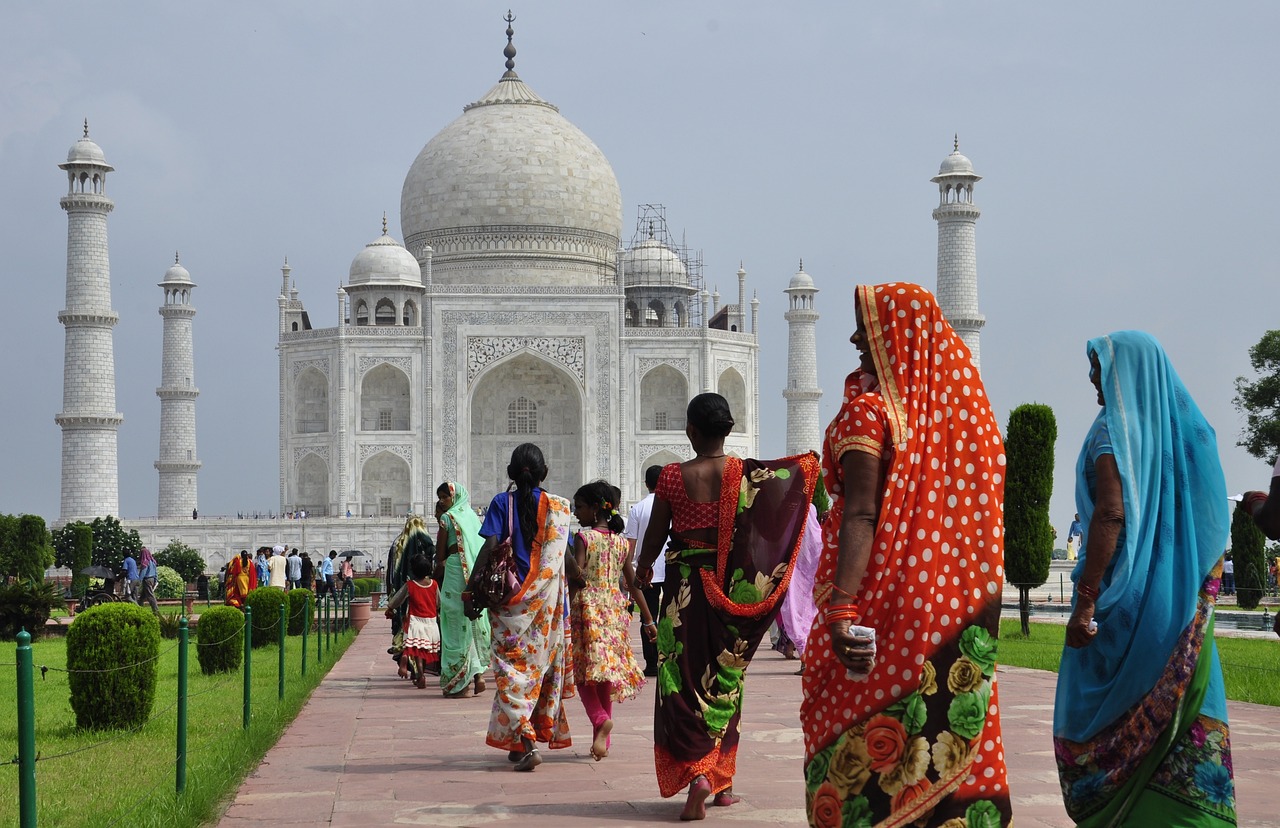From the Himalayas to the Backwaters: Why India is an Unforgettable Destination.
India, the land of diversity, is a destination that offers an incredible mix of culture, history, and nature. From the Himalayas in the north to the backwaters of Kerala in the south, India is a vast and vibrant country that will leave you mesmerized. In this article, we’ll explore why India should be your next travel destination.
Historical and Cultural Landmarks:
India is home to several historical and cultural landmarks that are known around the world. The Taj Mahal, one of the Seven Wonders of the World, is a must-visit destination in India. Other popular historical landmarks include the Red Fort in Delhi, Amer Fort in Jaipur, and the Ajanta and Ellora Caves in Maharashtra. India’s rich culture can be experienced through its festivals, dance forms, and cuisines.




Natural Beauty:
India is a land of diverse landscapes, ranging from the snow-capped mountains of the Himalayas to the pristine beaches of Goa. The backwaters of Kerala, the deserts of Rajasthan, and the lush green forests of the Northeast are some of the natural wonders that India has to offer. India’s wildlife is also diverse and can be experienced through national parks and wildlife sanctuaries such as Jim Corbett National Park and Kaziranga National Park.




Food and Cuisine:
Indian cuisine is a fusion of different flavors and spices and is known for its diversity and complexity. Each region in India has its own unique cuisine, and visitors can experience a wide range of dishes from vegetarian to non-vegetarian, spicy to sweet. Some of the popular dishes include biryani, butter chicken, and samosas.


Accommodations:
India offers a range of accommodations, from budget-friendly guesthouses to luxurious resorts. Visitors can choose from heritage hotels that have been converted from palaces and forts or stay in eco-resorts that offer an immersive experience in nature. Some of the popular hotels include the Taj Group of Hotels, Oberoi Hotels and Resorts, and Leela Hotels and Resorts.
Hospitality:
India is known for its hospitality and welcoming nature. Visitors are treated with warmth and kindness and are often invited to be a part of the local culture. Indians are proud of their country and are always happy to share their knowledge and experiences with visitors.
In conclusion, India is a destination that offers a unique blend of culture, history, and nature. From the historical landmarks to the natural wonders, from the food to the hospitality, India is a country that will leave you with a lifetime of memories. So, pack your bags and head to India for an unforgettable travel experience!
Frequently Asked Questions (FAQs)
A: India is home to several historical landmarks that are renowned worldwide. The Taj Mahal, Red Fort, Amer Fort, and Ajanta and Ellora Caves are among the top must-visit historical sites in India. These landmarks showcase India’s rich history and architectural marvels.
A: India boasts diverse natural landscapes. Visitors can explore the snow-capped Himalayas, pristine beaches in Goa, backwaters of Kerala, deserts of Rajasthan, and lush green forests of the Northeast. National parks like Jim Corbett and Kaziranga offer opportunities to experience India’s diverse wildlife.
A: Indian cuisine is known for its diverse flavors and spices. Each region in India has its own distinct cuisine, offering a wide range of dishes to try. From vegetarian to non-vegetarian, spicy to sweet, Indian cuisine is a delightful fusion of tastes and aromas.
A: India offers a wide range of accommodations to suit various budgets and preferences. Visitors can choose from budget-friendly guesthouses, luxurious resorts, heritage hotels converted from palaces and forts, and eco-resorts that provide a close connection to nature.
A: India is renowned for its hospitality and welcoming nature. Visitors are often greeted with warmth and kindness, and locals are eager to share their culture and experiences. Indians take pride in their country and are happy to help and guide travelers.
FAQs
A: Like any travel destination, it’s important to take general safety precautions while visiting India. It is advisable to follow local customs, be aware of your surroundings, and take necessary precautions to safeguard your belongings. It’s also recommended to check travel advisories and guidelines specific to your destination in India.
A: The best time to visit India varies depending on the region. India experiences diverse climates due to its size and geographical features. Generally, the winter months (October to March) offer pleasant weather across most parts of the country, making it an ideal time to explore.
A: India is known for its vibrant festivals and cultural events. To experience them, check the festival calendar and plan your visit accordingly. Participating in local festivities, such as Diwali or Holi, can provide an immersive cultural experience.
A: India offers a range of adventure activities for thrill-seekers. Trekking in the Himalayas, camel safaris in Rajasthan, river rafting in Rishikesh, and wildlife safaris in national parks are some of the popular adventure options in India.
Leave a Reply